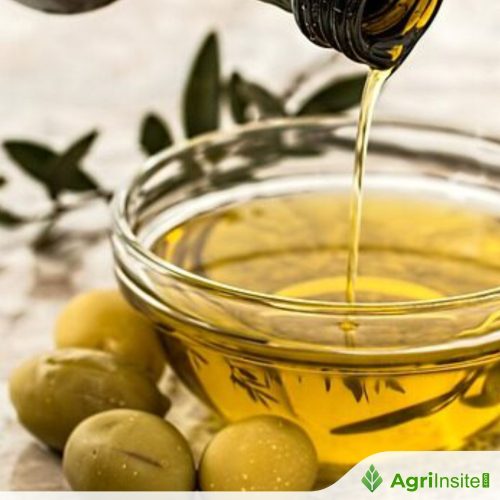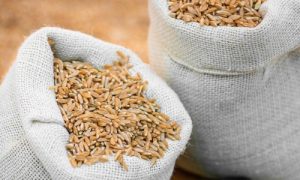Bangladesh : Farmers expand oilseed production as import costs rise

Bangladesh’s expenditure on edible oil and oilseeds has surged due to rising demand and higher global prices, particularly after the Russia-Ukraine war. To counteract the growing import costs, local farmers have increased oilseed cultivation, particularly mustard and sunflower. This expansion is supported by government incentives and initiatives, including a project to boost mustard, sunflower, and groundnut production. The aim is to reduce dependency on imports, with oilseed acreage growing by 27% in 2023-24. Additionally, mustard oil’s rise has led to decreased demand for soybean oil .
Bangladesh’s expenditure on importing edible oil and oilseeds is increasing to meet growing demand for cooking oil for growing population and income.
For example, the nation spent a total of Tk 41,250 crore to import edible oil and oilseeds in fiscal year (FY) 2022-23, which had been double from Tk 20,493 crore three years ago.
In first seven months of the current fiscal, the import cost for edible oil and oilseeds declined 15 percent year-on-year, data of Bangladesh Bank showed.
Still, the import cost was Tk 22,600 crore during the period.
This is because of increased prices of essential commodities in the international market following the start of the Russia-Ukraine war and significant depreciation of the local currency, taka, against the US dollar.
The spiralling import cost has ultimately driven the price of edible oil, creating an opportunity for growers to profit from cultivation of oilseeds.
Farmers have responded too.
Over the last two years, cultivation of oilseed, chiefly mustard, has expanded in Bangladesh as, according to a report by the US Department of Agriculture (USDA), mustard oil has become very competitive since 2022, when the price of soybean oil reached a record high.
Simultaneously, the acreage of sunflower to produce sunflower oil, a relatively expensive cooking ingredient, has grown.
And farmers in southern coastal districts are expanding their sunflower acreage to reap the benefit of higher prices.
Take the case of Kazi Anichur Rahman, a farmer in Gasani village of Patuakhali’s Dashmania upazila.
He has been cultivating the oilseed since 2022 to reduce the vulnerability of edible oil in the market. And his cultivation area of sunflower is 20 acres of land this season.
“After meeting the requirement for my five-member family, I can sell the remainder in the market,” said Rahman, who got seeds from the local agriculture office as an incentive.
The farmer said yield of the oilseed crop is good and expected to bag at least 30 maunds (one maund equals about 40 kilogrammes) of sunflower seeds.
With an expected price of Tk 3,000 to Tk 3,200 per maund, Rahman expects to make a good profit.
Data of the Department of Agricultural Extension (DAE) showed that farmers have cultivated sunflowers on 2,100 hectares of the 10,679 hectares being used for oilseed cultivation this year.
The total oilseed area, including groundnut and mustard, was around 8,000 hectares the previous year.
The acreage of oilseeds in Barguna, another coastal district, has expanded as well this year.
DAE said farmers sowed the oilseed on 13.55 lakh hectares for the current fiscal year 2023-24, which was 27 percent higher from a year ago, when overall production was 16 lakh tonnes.
In FY22, Bangladesh’s oilseed acreage was 8.60 lakh hectares. That year, total production of oilseed, including the main crop mustard, was 12.3 lakh tonnes, according to a provisional estimate by the DAE.
The Bangladesh Bureau of Statistics, which releases the final estimate of crops, said there has been growth in acreage and production of oilseeds in the three years ending with FY22.
It estimated that the total yield of oilseeds stands at about 10.34 lakh tonnes.
The latest growth comes as the government is encouraging farmers to produce oilseeds to reduce import dependence.
Official estimates of the country’s edible oil requirement vary by roughly 10 lakh tonnes.
The Bangladesh Trade and Tariff Commission estimates an edible oil requirement of 20 lakh tonnes. Meanwhile, the USDA said the total demand for edible oil in Bangladesh is about 30 lakh tonnes.
Bangladesh is accounts for more than two-thirds of the requirement for edible oil imported from Indonesia, Malaysia and Argentina and Brazil.
The government had earlier taken a Tk 278 crore project to increase the production of mustard, sunflower, groundnut.
The scheme to be implemented in the 2020-25 period aims to increase the acreage and yield of oilseed by up to 20 percent after implementation, and thereby reduce imports.
In its report on Bangladesh’s oil and oilseeds market, the USDA said due to government initiatives, mustard cultivation has increased substantially.
“This rise in mustard oil production has led to a decrease in the demand for soybean oil in the local market. With lower prices of palm oil, many consumers have switched from consuming soybean oil to palm oil,” it added.
Agriculture officials and farmers said alongside the higher price of soybean oil, release of high-yielding varieties of mustard and the scope to grow oilseeds between Aman and Boro rice crops because of release of short-duration varieties of rice have encouraged farmers to widen mustard cultivation.
Md Nazrul Islam, deputy director of the Patuakhali DAE, said edible oil prices are gradually increasing.
“For this, we are encouraging farmers to produce more oilseeds,” he added.
Badrul Alam, additional deputy director of the Barguna DAE, said they are encouraging farmers by giving fertilisers and seeds as incentive to increase the cultivation of oilseeds.
“Farmers are also showing interest in the cultivation of oilseeds,” he added.
To read more about Edible Oil News continue reading Agriinsite.com
Source Link : The Daily Star














